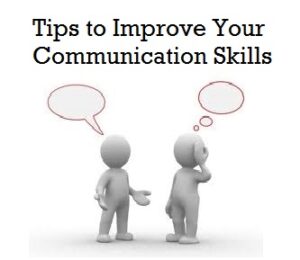
Effective Communication Tips for Personal and Professional Success
Communication is the foundation of human interaction. Whether it’s in the workplace, at home, or in social situations, how we communicate shapes our relationships, opportunities, and overall success. Many people assume that communication is simply about talking, but in reality, it’s about listening, understanding, and delivering messages effectively.
In this article, we will explore essential communication tips that can help you express yourself clearly, build stronger relationships, and avoid misunderstandings.
Why Good Communication Matters
Before diving into tips, it’s important to understand why communication is crucial in every aspect of life:
- Career Growth – Professionals with strong communication skills are more likely to be promoted, as they can lead teams and negotiate effectively.
- Relationships – Healthy communication helps build trust and reduces conflicts in personal relationships.
- Confidence – Expressing yourself clearly boosts self-esteem.
- Problem Solving – Effective communicators can resolve conflicts and misunderstandings faster.
With this in mind, let’s explore practical ways to improve communication.
1. Practice Active Listening
One of the most overlooked communication tips is listening more than speaking. Active listening means fully concentrating on the speaker instead of thinking about your response.
How to practice it:
- Make eye contact with the speaker.
- Avoid interrupting.
- Nod or use small gestures to show engagement.
- Repeat back or paraphrase what you’ve heard to confirm understanding.
Active listening builds respect and prevents miscommunication.
2. Be Clear and Concise
Clarity is essential in effective communication. Long, complicated sentences often confuse listeners. Instead, keep your message simple and to the point.
Example: Instead of saying,
“Due to multiple reasons and external circumstances, I was unable to attend the scheduled meeting yesterday,”
say,
“I missed the meeting yesterday due to unforeseen circumstances.”
Clear communication saves time and ensures the listener grasps the message quickly.
3. Pay Attention to Non-Verbal Cues
Body language, gestures, and tone of voice play a huge role in communication. Research shows that a large portion of communication is non-verbal.
Key non-verbal tips:
- Maintain good posture—it shows confidence.
- Smile genuinely to create a friendly atmosphere.
- Use open hand gestures instead of crossed arms.
- Match your tone of voice to the message (serious, friendly, encouraging, etc.).
4. Adapt to Your Audience
One of the most powerful communication tips is to know your audience. The way you communicate with a colleague will differ from how you speak to a child or a client.
- With professionals: Use formal language and avoid slang.
- With friends: Keep it casual and relaxed.
- With a diverse audience: Use simple, universal terms that everyone can understand.
Adapting your style helps your message connect better.
5. Build Emotional Intelligence
Communication isn’t just about words—it’s about empathy and emotions. Emotional intelligence (EQ) is the ability to recognize and manage your emotions while also understanding others’.
How to improve EQ:
- Be self-aware of your reactions.
- Practice empathy by imagining how others feel.
- Manage stress before entering important conversations.
High emotional intelligence helps you stay calm, connect better, and avoid unnecessary conflicts.
6. Ask Questions
Good communicators don’t just deliver information—they also seek understanding. Asking questions shows interest and ensures clarity.
Examples:
- “Could you explain that a bit more?”
- “Do you mean X or Y?”
- “What do you think about this idea?”
This not only prevents misunderstandings but also makes conversations more interactive.
7. Improve Your Vocabulary, but Avoid Jargon
A strong vocabulary makes communication powerful, but using overly complex words or industry jargon can confuse listeners. Strike a balance by choosing words that are professional yet easy to understand.
Tip: Read books, listen to good speakers, and practice writing regularly to expand your vocabulary naturally.
8. Practice Public Speaking
Public speaking is one of the best ways to enhance communication skills. Even if you don’t address large crowds, practicing in front of smaller groups boosts confidence.
Practical exercises:
- Join clubs like Toastmasters.
- Record yourself giving a short talk.
- Practice speaking in front of a mirror.
Over time, public speaking improves clarity, tone, and self-confidence.
9. Manage Digital Communication Effectively
In today’s digital world, communication is not limited to face-to-face interaction. Emails, chats, and social media messages are equally important.
Tips for digital communication:
- Keep emails structured with greetings, main content, and closing.
- Avoid all caps, which may seem like shouting.
- Use emojis cautiously in professional settings.
- Re-read messages before sending to avoid errors.
10. Practice Patience and Silence
Sometimes, the best communication tip is knowing when not to speak. Silence allows others to express themselves and gives you time to process thoughts.
Practicing patience in conversations prevents arguments and helps you respond thoughtfully instead of reacting emotionally.
Bonus: Keep Practicing Daily
Communication is a skill—it improves with regular practice. Challenge yourself to talk to new people, participate in discussions, and apply these tips daily. Over time, you’ll notice significant improvements in how you connect with others.
Conclusion
Strong communication is the key to success in both personal and professional life. By applying simple yet effective communication tips like active listening, clarity, emotional intelligence, and adaptability, you can improve relationships, boost confidence, and achieve your goals.
Remember, communication is not just about speaking—it’s about connecting, understanding, and leaving a lasting positive impression.
Also Read: Top Fitness Apps Technology